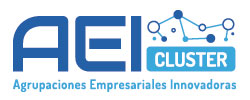Aragonese innovation aligned with water and digitalisation
The Cluster for the efficient use of water, ZINNAE, based in Zaragoza, has led the coordination of 4 projects, bringing together a total of 15 entities, mostly SMEs, financed with a grant of 360,136 € awarded by the Ministry of Industry, Trade and Tourism, through the call for Aid to Innovative Business Groups (AEIs), with funds from the European Union-Next Generation EU (Recovery, Transformation and Resilience Mechanism).
The research carried out during the development of these 4 Aragonese innovation projects has revealed synergies between the collaborating companies and entities, which have allowed addressing important challenges regarding the use and reuse of water, digitalisation, circular economy or hydrogen generation, affecting different sectors of the industrial fabric.
The first project, Bodegas 4.0, in its first of three phases, has analysed the use and consumption of water in two different wineries, through the installation of sensors, monitoring and Lean Water workshops with the staff. All of this has enabled them to propose more than 50 activities to be developed and 2 action plans, involving both workers and equipment and facilities. In addition, two different water reuse technologies have been implemented in each of the wineries, depending on the specific needs of each company. The short-term forecast is for a 10% reduction, only with measures related to data management and optimisation of current systems. In the medium term, taking into account the development of process optimisation and water reuse systems, savings of 25% are estimated.
The second research project, called BioH2, is developing a technology for the biological production of hydrogen from wastewater, which, through the application of engineering and biotechnology, makes it possible to produce this energy vector without generating greenhouse gases. As technological scaling and validation must be carried out progressively, the work has been structured in several phases and, in this first phase, laboratory tests have been carried out in reactors of different sizes, with different bacterial cultures and analysing different reaction conditions. In addition, a suitable gas distribution, storage and compression system has been designed and implemented. All this, applying digitalisation technologies for process monitoring and control.
The third project, S-TraZer, has developed a pioneering sensor for the detection and tracking of additives or tracers in technical fluids. This process, in general, is usually carried out through different chemical tests in the laboratory on samples taken periodically. The research has managed to implement a multifunctional prototype based on a spectroscopic technique, which, in addition to being specific and minimally invasive, allows the measurement to be carried out in the same installation in real time, quantifying, analysing data, generating reports, storing and monitoring the data in the cloud through the corresponding application. Likewise, it has been considered to select components that make it possible to offer this technology at a limited cost for end users. These consumers and the configuration where it is applied can be very varied: industrial processes (in pipes), water safety (leaks, spills), livestock (dosing of medicines) or agriculture (use of fertilisers).
In the fourth research, RINDIA, new digital technologies, Big Data and Artificial Intelligence are applied as tools for improving the resilience of industrial water supply systems, addressing quantitative aspects of both quantity and quality. To this end, use has been made of open monitoring data of water bodies and, in addition, multispectral information obtained by Sentinel satellites has been used for comparison with in situ measurements of ecological indicators. All of this has been unified in a digital predictive management platform that includes water quality criteria at source, as well as disruptive supply events (scarcity and drought). In this way, the strategic intelligence and competitive capacity of companies highly dependent on water resources will be fostered.
All these initiatives contribute to an efficient use of water, to the reduction of water pollution and to the valorisation of wastewater, thus increasing the competitiveness of the companies involved and demonstrating the commitment of the industrial network to the aims of ecological transition, digital transformation and resilience, established at both national and European level.
These 4 projects bring together: 1 Public Teaching and Research Institution (the University of Zaragoza), 11 SMEs – 9 of them Aragonese – (ACAI Depuración, Bodegas Aragonesas, Velaber Consulting, Bodegas Grupo Yllera, Carpemar, INAR Tecnologías, h2ï Analytics, Anbiotek, Ingeobras, Grupo Técnico RIVI and DAB Biotecnología), 1 large company (Sastesa) and 2 other clusters (ACLIMA, Basque Environment Cluster, and VIVARTIS, Asociación de la Industria Alimentaria de Castilla y León), apart from ZINNAE.





